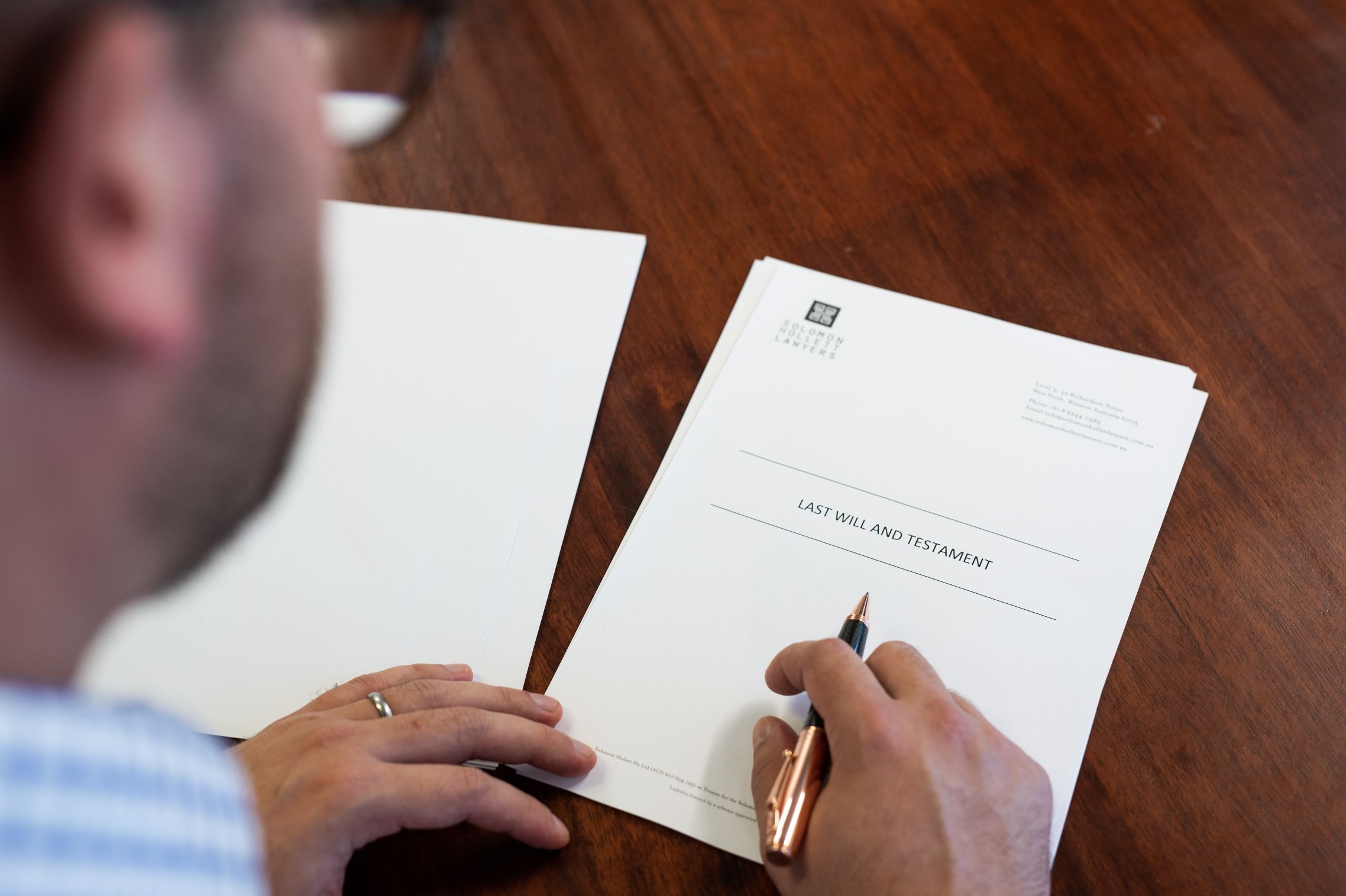Marriage, separation and divorce are undoubtedly some of the biggest moments in our lives. And just as these moments hold big personal significance, they also have a big impact on the legal aspects of your life – especially your last Will and testament.
With inheritance becoming a more and more relevant issue as the intergenerational wealth transfer is picking up speed, it’s helpful to know the ins and outs when it comes to relationships and of course, separation and divorce.
Here we will take a closer look at the effect of marriage on your last Will and testament, as well as what happens in cases of separation and divorce.
Does getting Married Invalidate a Will?
In most cases, yes. Section 14 of the Wills Act 1970 states that in case of marriage the Will of the testator (whoever made the Will) is revoked, unless:
- It is made in contemplation of the marriage;
- The Will is made in exercise of a power of appointment (where the property would not fall into the hands of the testator’s appointer); and
- Where the marriage is not solemnised.
The words ‘contemplation of the marriage’ means that the person who wrote the Will did so with the intention or in anticipation of a marriage, or if any evidence suggests that the Will was made in anticipation of marriage.
What about Subsequent Marriages?
The same rule applies if a subsequent marriage is solemnised. This means that a subsequent marriage invalidates the previous Will of the testator. If you have recently married, or indeed remarried, it’s important to update your legal Will and testament to reflect the changes in your personal life. This will remove any confusion or possibility of an invalid Will upon your death.
What does a De-Facto Relationship mean for a Will?
In Western Australia, de-facto relationships are defined as two people who are living together in a marriage-like relationship, yet without actually being legally married. The term de-facto is derived from ‘of fact’ which essentially means that you behave like a married couple, but are not.
The existence of a de-facto relationship, like marriage, impact a person’s considerations when making their Will, in that a de-facto partner is treated in the same way as a married spouse under the relevant inheritance laws. As the Will-maker, you have a moral obligation to adequately provide for your de-facto partner in the same way you have a moral obligation to provide for your married spouse (and sometimes, where someone is legally married and also in a de facto relationship, you can have both).
If someone dies without a Will and does not adequately provide for their de-facto partner, it can often cause a raft of issues for the surviving de-facto partner when there are surviving children from a previous relationship, as the surviving de-facto partner has the onus of proving that the de-facto relationship existed (if this is disputed by other surviving family members). The usual indicators of the existence of a de-facto relationship are set out in section 13A of the Interpretation Act 1984 (WA).
Similarly, if you’re in a de-facto relationship that breaks down and you have made provision in your Will for your previous de-facto partner, this could have massive implications for your last Will and testament (for example, if there are children who may contest the Will).
A key case here is Blyth v Wilken, where the WA Supreme Court found in 2015 that the way the will described the gift determined whether it was transferred to the de-facto partner following the death of the testator.
The outcome of this ruling put de-facto couples in the spotlight. If you’re ending a de-facto relationship, make sure you review your estate planning arrangements to ensure your gifts or transfers are honoured or removed from any Will.
Separation and Impact on a Will
Separation from your married spouse is a difficult time for anyone going through it, and it’s important to know what the legal ramifications are when it comes to Wills and testaments. From the moment you separate until you actually finalise the divorce by obtaining an order from the Family Court, your will remains valid.
Sometimes spouses remain separated for many years before they finally apply for and finalise a divorce. During this time, unless a Will is revoked, it will remain valid. In cases where a spouse passes away before the divorce is settled and final orders made, your former spouse will be entitled to a portion of the estate.
Separated couples – married or de-facto, need to ensure their Will is updated to reflect their current circumstances. If you’ve recently separated, it’s important you contact a qualified legal practice with dedicated Will solicitors who can look into your individual case.
Divorce and Wills, what to expect
Like marriage and separation, divorce also plays a critical role in whether your Will is valid or not.
In Western Australia, the Wills Act 1970 states that a divorce order made after 9 February 2009 will invalidate a Will. There are, however, some key exceptions to this rule. One of these exceptions is when your will clearly indicates that the Will is being made in ‘in contemplation’ of divorce. This will come down to the evidence surrounding the creation of the Will, and is a long and expensive road to either prove or disprove. The gold standard here is updating your Will with clear intentions.
Remember, that while this holds true for Western Australia, different laws apply to different states and territories, so be sure to check your local laws for discrepancies.
Secure your Will with the Experts
Life events like marriage, separation or divorce impact your Will’s validity. It’s important to know what your situation is and how to navigate the legal system when it comes to protecting your estate and your final wishes.
To secure your assets following a big life event, it’s important to get the right legal assistance. Here at Solomon Hollett Lawyers, our team can support you in finding the right solution for you and your family. We believe effective estate planning is one of the most valuable gifts you can give to those close to you.
For a qualified Will lawyer and expert advice on estate planning, we offer a free 15-minute consultation. Stop Googling wills and estate lawyers near me and call one of our legal experts today on 08 6244 0985.








